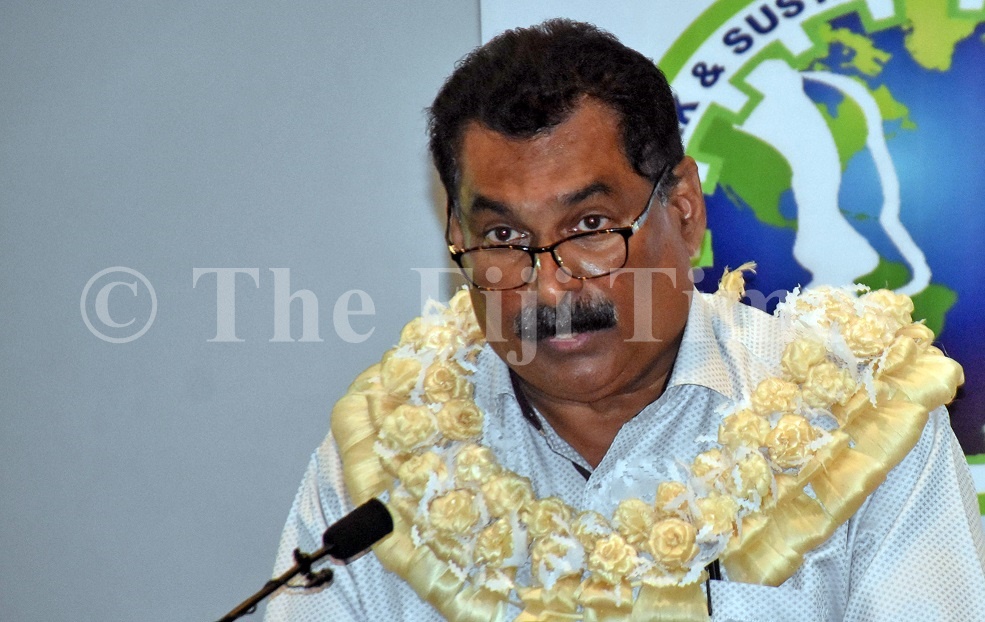Without our favourite Kaila!
Wednesday, February 6, 2025, marked a dark day as the favourite newspaper for young and adults, the Kaila! newspaper was not part of The Fiji Times. My students and I missed the fun and glamour shared by the newspaper read by many Fijians. With the highly anticipated prefect induction ceremony coming up, I’ll miss reading the success stories of our young student leaders and the smiling pictures of our leaders. I’m sure our students will feel the loss of the newspaper that has become a treasure for many. They’ll now look back at the good old days and marvel at the beauty of the newspaper that not only educated and informed, but motivated and inspired many students and young leaders. If only I could turn back time! Rajnesh Ishwar Lingam, Nadawa, Nasinu
Phone abuse
Janif’s comments on mobile phone use starting at an early stage with parents (FT 5/2) seems to be a phone sickness globally. Recently, I had many visitors, local and from abroad, but most of them spent more time on their phones than talking to the host. I would have loved to cherish our memorable days as we had met after decades, and welcomed with statements, “Long time no see!” Instead it sounded more like, “no talk, no contacts. No face, only phone!”It feels like we are in a different world, missing talanoa sessions with friends and families. I still prefer to maintain my slow phone. My Girmitiya grandfather used to caution me: “If you can manage with one rupee, why spend two?” Use your phone wisely, but don’t abuse it with addiction. Tahir Ali, Hamilton, New Zealand
Congratulations Lynda
I write to warmly congratulate Lynda Tubuya, the former Minister for Women, Children & Social Protection. She has just come out of a very traumatic and embarrassing situation. I can well imagine her mental torture and anguish. Now she will sit in the parliament as a backbencher. The PA Legal and Disciplinary Sub-committee must be congratulated for fair and unbiased inquiry on Lynda. She also tendered a written apology to the PA party and its members. Thus paving the way for a compassionate hearing which saved her parliamentary career. I am not at all surprised that foreign journalists also had a hand in tarnishing her image and indulging in character assassination. Lynda has taken proactive action to sue two of these people, in Australia and in the United Kingdom. I believe these mischief makers must be brought to justice. I re-assert that Lynda Tubuya is a very popular woman politician and has a big following which is reflected by the number of votes she captured in the last general elections. She is well spoken and articulate with great people connect, therefore, I predict that she will bounce back politically and play a big role in national politics: potentially the first woman prime minister! However, the entire episode has been a great eye-opener for many young politicians. And I repeat that to err is human and to forgive is divine! Best of Luck Lynda. Dewan Chand, Namadi Heights, Suva
ERB issue
I am writing in response to recent articles in your newspaper regarding the Employment Relations Bill (ERB), which will make it compulsory for employers to carry out union-related work without pay, under the threat of penalties. I believe this proposal would primarily benefit trade unions and not the broader interests of our country. At present, I believe no country in the world legally requires companies to perform union work for free as part of labour laws or regulations. International labour laws generally prohibits employers from being forced to perform union activities without compensation. I reached out to the International Labour Organization (ILO) for clarification, asking: “Can a person be forced to work against their will for someone else’s benefit without pay or remuneration?” The ILO’s response was clear: “Thank you for your email. The short answer to your question is no, a person should not be forced to work against their will, with or without being remunerated.” The ILO also outlined the key elements of forced or compulsory labour, which include:
1. Threat of penalty. The penalty may consist in a penal sanction, such as arrest or jail, or in the suppression of rights or privileges, such as the refusal to pay wages or forbidding a worker from travelling freely. Threats of retaliation may be realised in different forms, from the most blatant, which include the use of violence, physical obligations or even death threats.
2. Work or service undertaken involuntarily. Deciding whether work is performed voluntarily often involves looking at external and indirect pressures, such as the withholding of part of a worker’s salary as part-repayment of a loan, or the absence of wages or remuneration, or the seizure of the worker’s identity documents.
Given these principles, I urge the Government to carefully reconsider any plans to enforce such draconian measures through the ERB, as it risks not only violating international labour standards but also causing significant harm to our nation’s reputation and economic stability. Enforcing such a law would invite potential conflicts with the ILO and could ultimately lead to detrimental consequences for the country. Dinesh Jamnadas, Sugar Avenue, Lautoka






